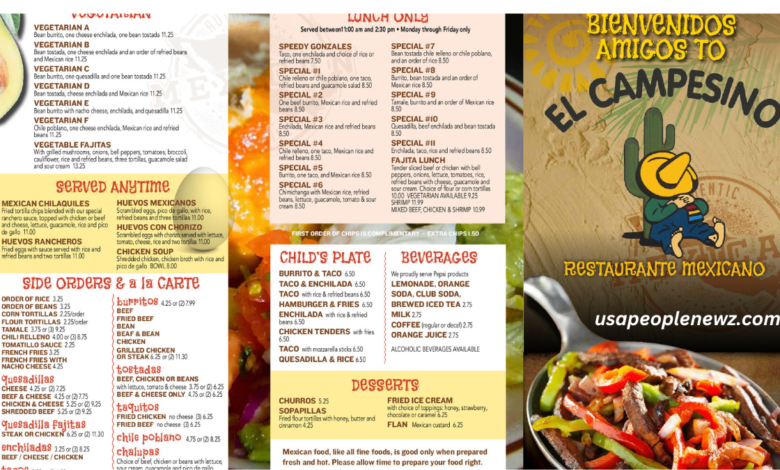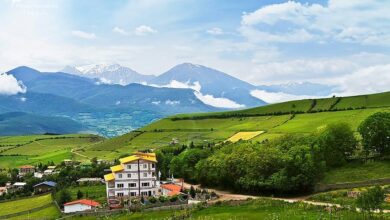El Campesino: The Heartbeat of Rural Life

In the picturesque landscapes of Latin America, the term “el campesino” encapsulates more than just a job title—it represents a way of life deeply rooted in tradition, resilience, and a profound connection to the land. This article delves into the multifaceted role of el campesino, exploring its cultural significance, daily challenges, and the evolving dynamics of rural life. As we traverse through this exploration, we aim to uncover the rich tapestry of stories, traditions, and transformations that define el Campesino.
The Historical Context of El Campesino
Understanding the role of El Campesino requires a glance into history. The term itself, which translates to “the peasant” or “the countryman,” has evolved significantly over time. Historically, campesinos have been the backbone of agrarian societies, providing essential food supplies and contributing to the economic stability of their communities.
In pre-Columbian times, indigenous communities in Latin America, often categorized as campesinos, practiced agriculture in harmony with their environment. They cultivated crops like maize, potatoes, and quinoa, utilizing advanced farming techniques that sustained their societies for centuries. With the arrival of European colonizers, the role of the campesino began to shift dramatically. Colonization brought new agricultural practices, but also exploitation and displacement, fundamentally altering the casino’s way of life.
During the colonial and post-colonial eras, campesinos often faced harsh conditions under various political regimes. Despite these challenges, their agricultural skills and cultural traditions persisted, adapting to new circumstances. The casino’s historical resilience is a testament to its enduring role in shaping rural Latin America.
El Campesino in Contemporary Society
Today, el campesino remains a vital component of rural life, though the context has changed significantly. Modern campesinos are not just traditional farmers but are increasingly involved in various aspects of rural development. They continue to practice agriculture, but now they also engage in agroecology, organic farming, and sustainable practices aimed at preserving the environment and enhancing food security.
In many Latin American countries, campesinos have become activists, advocating for land rights and sustainable agricultural policies. Organizations like the Campesino Movement (Movimiento Campesino) work to improve living conditions, access to resources, and educational opportunities for campesinos. Their efforts have led to significant reforms in land distribution and agricultural practices, although challenges remain.
The digital age has also impacted El Cousino’s life. With access to technology, campesinos can now share knowledge, market their produce, and connect with a global audience. This technological integration has opened new avenues for economic development and advocacy, allowing campesinos to navigate the complexities of modern life while preserving their traditional values.
The Daily Life of El Campesino
The daily life of el campesino is deeply intertwined with the rhythms of nature. Early mornings often begin with the sunrise, as campesinos head out to tend to their fields or livestock. Their routines are dictated by seasonal cycles and agricultural demands, making their lives both challenging and rewarding.
A typical day might involve planting, harvesting, or caring for animals, along with other essential tasks such as maintaining tools and repairing infrastructure. Campesinos often work long hours, with their labor closely tied to the success of their crops and the well-being of their families. Despite the hard work, many campesinos find fulfillment in their connection to the land and the satisfaction of producing food that sustains their community.
Community life plays a significant role in the daily existence of campesinos. Social gatherings, local festivals, and communal workdays (known as “faenas”) foster a strong sense of solidarity and cooperation. These traditions not only provide practical assistance but also strengthen social bonds and cultural heritage. For many campesinos, the support of their community is a vital source of resilience and happiness.
The Cultural Significance of El Campesino
El Campesino is more than just a rural worker; they are the custodians of a rich cultural heritage. Their customs, practices, and beliefs are deeply embedded in the cultural fabric of Latin America. Traditional festivals, music, and folklore often celebrate campesino life, highlighting their role in preserving local traditions and cultural identity.
Festivals such as Día del Campesino (Peasant’s Day) are occasions to honor the contributions of campesinos to society. These celebrations often feature traditional music, dance, and culinary delights that reflect the diverse cultural influences of the Campesino communities. Through these events, the broader society acknowledges and appreciates the significant role of campesinos in maintaining cultural continuity.
Craftsmanship and artisanal skills are another aspect of campesino culture. Many campesinos are skilled artisans, creating handmade goods such as textiles, pottery, and traditional clothing. These crafts not only provide a source of income but also serve as a means of preserving and transmitting cultural knowledge and techniques from one generation to the next.
Challenges Facing El Campesino
While el campesino plays a crucial role in rural life, they face numerous challenges that impact their well-being and livelihood. Economic pressures, environmental changes, and social issues are among the primary difficulties encountered by campesinos.
Economic instability is a significant concern, as campesinos often work in conditions of precariousness and limited access to resources. Market fluctuations, rising costs of inputs, and inadequate infrastructure can make it difficult for campesinos to sustain their livelihoods. Additionally, land rights and access to credit are ongoing issues that can affect their ability to invest in and maintain their agricultural practices.
Environmental challenges also pose a threat to campesinos. Climate change, soil degradation, and deforestation impact agricultural productivity and the sustainability of their farming practices. Many campesinos are on the front lines of environmental conservation efforts, working to adapt to changing conditions and implement sustainable practices to protect their land and resources.
Social issues, including inadequate access to education and healthcare, further compound the challenges faced by campesinos. Efforts to improve these aspects of rural life are ongoing, with various organizations and government initiatives working to address disparities and provide support to campesino communities.
The Future of El Campesino
Looking ahead, the future of el Campesino is likely to be shaped by ongoing changes in agriculture, technology, and policy. The integration of sustainable practices and technological advancements presents opportunities for campesinos to enhance their productivity and resilience.
One promising development is the growing emphasis on agroecology and organic farming. These approaches prioritize environmental health and sustainability, aligning with traditional campesino values while addressing modern challenges. By adopting these practices, campesinos can contribute to a more sustainable food system and improve their economic prospects.
Technological innovations, such as digital platforms for marketing and access to information, offer new possibilities for campesinos. These tools can help them connect with broader markets, access resources, and share knowledge. However, ensuring equitable access to technology and training remains a crucial factor in leveraging these benefits.
Policy changes and advocacy efforts also play a critical role in shaping the future of el campesino. Continued support for land rights, fair trade practices, and rural development initiatives can help address systemic issues and improve the quality of life for campesinos. Collaborative efforts between government, organizations, and communities will be essential in creating a supportive environment for the future of campesino life.
Conclusion
El campesino stands as a symbol of resilience, tradition, and the enduring connection between people and the land. Through their historical journey, daily struggles, and cultural contributions, campesinos have demonstrated an unwavering commitment to their way of life. As they navigate the complexities of the modern world, the essence of el campesino remains a testament to the strength and vitality of rural communities.
As we reflect on the role of el campesino, it is important to recognize and support their contributions to society. By addressing the challenges they face and celebrating their cultural heritage, we can honor the legacy of el campesino and work towards a more equitable and sustainable future for all.
This article delves into the various aspects of el campesino, capturing their historical significance, current challenges, and cultural impact. By highlighting their contributions and exploring their evolving role, we gain a deeper appreciation for the resilience and importance of these vital rural figures.





